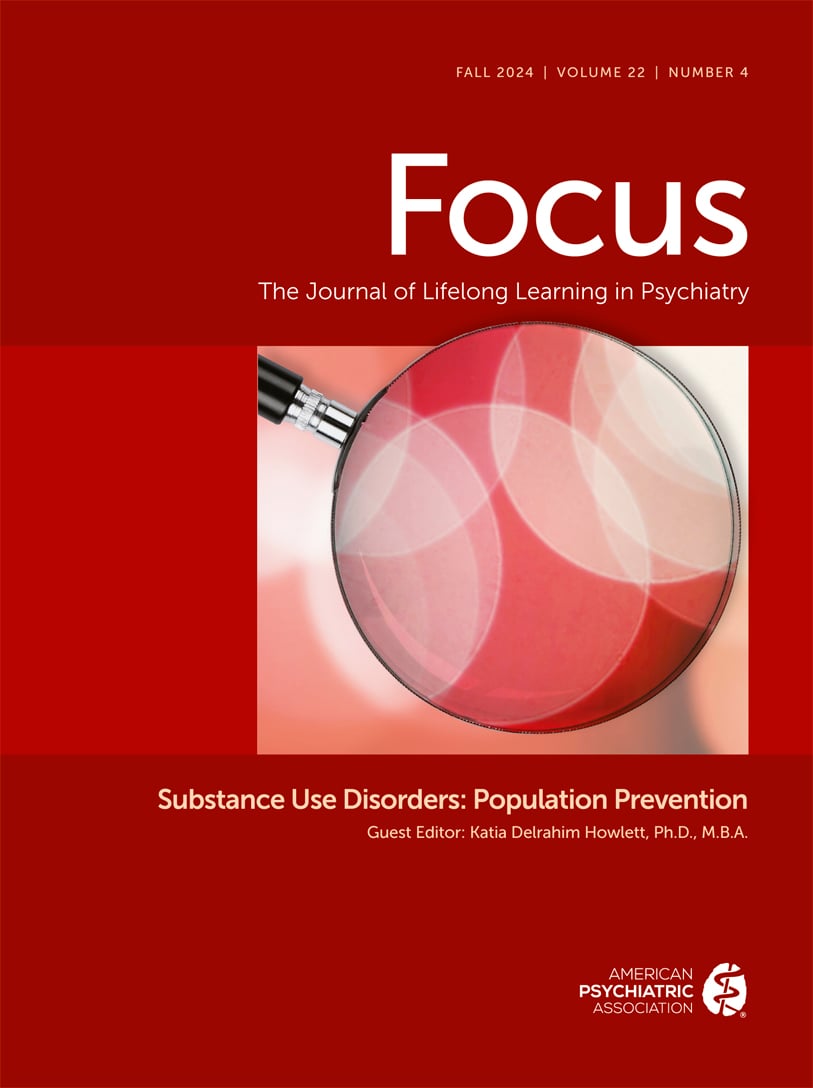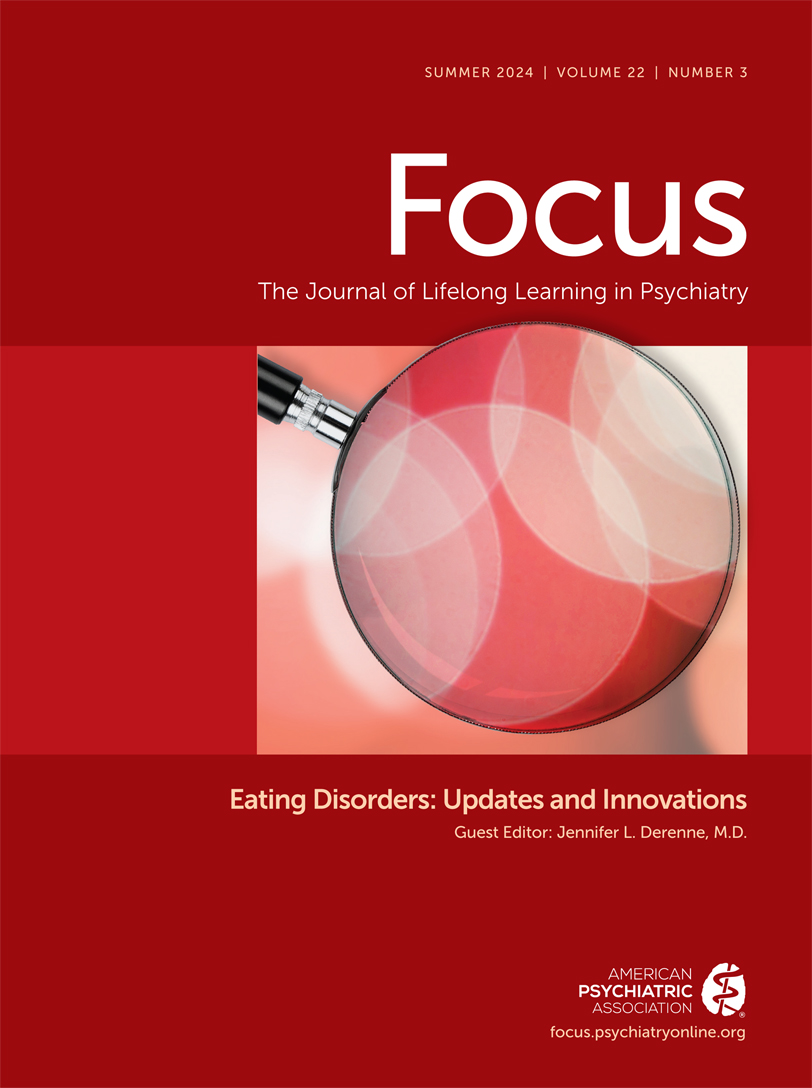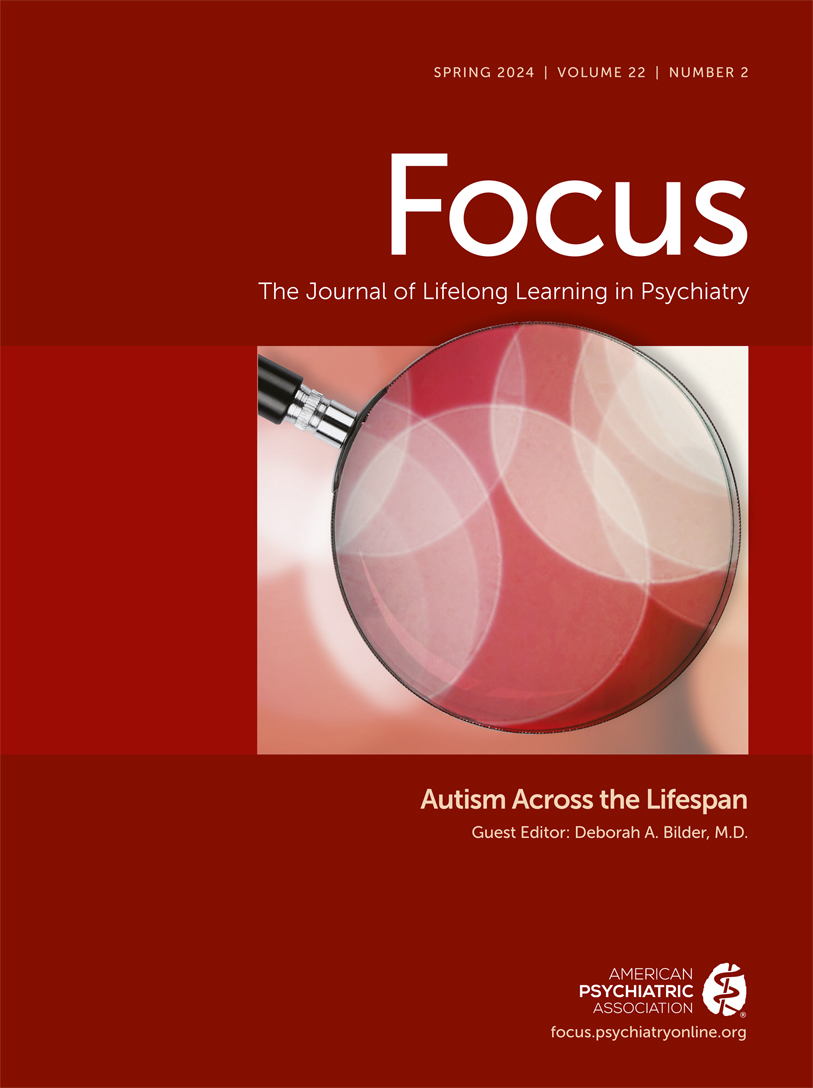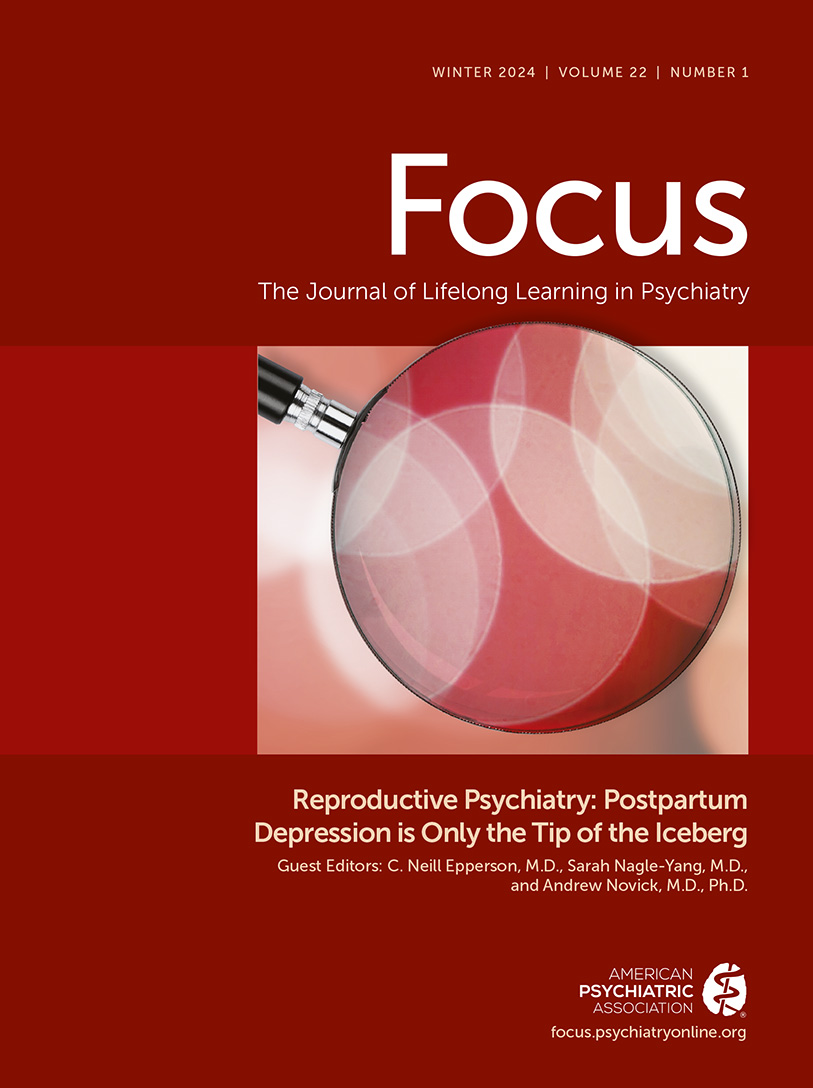Focus
- Volume 6
- Number 3
- July 2008
From the Guest Editor
CLINICAL SYNTHESIS
Publication date: 01 July 2008
Pages271–283Despite dramatic increases in the rate at which bipolar disorder is being diagnosed in children and adolescents, there remain several outstanding questions regarding definitional issues, valid assessment procedures, effective treatment approaches, and the ...
https://doi.org/10.1176/foc.6.3.foc271Publication date: 01 July 2008
Pages284–292The autism spectrum disorders (ASDs) are relatively common disorders characterized by profound disturbances in social skills. Although the prevalence of ASDs has increased, this increase reflects changes in diagnostic criteria, public awareness, and ...
https://doi.org/10.1176/foc.6.3.foc284Publication date: 01 July 2008
Pages293–296The national shortage of child psychiatrists has left many children without access to treatment. Telepsychiatry can extend the reach of child psychiatry by providing consultative care to children at a distance. The authors provide a definition of ...
https://doi.org/10.1176/foc.6.3.foc293PATIENT MANAGEMENT
Publication date: 01 July 2008
Pages299–313This exercise is designed to test your comprehension of material presented in this issue of FOCUS as well as your ability to evaluate, diagnose, and manage clinical problems. Answer the questions below, to the best of your ability, on the basis of the ...
https://doi.org/10.1176/foc.6.3.foc299INFLUENTIAL PUBLICATIONS
Publication date: 01 July 2008
Pages314–316This section contains a compilation of recent publications that have shaped the thinking in the field as well as classic works that remain important to the subject reviewed in this issue. This bibliography has been compiled by experts in the field and ...
https://doi.org/10.1176/foc.6.3.foc314Publication date: 01 July 2008
Pages322–330The number of children in the US taking prescription drugs for emotional and behavioral disturbances is growing dramatically. This growth in the use of psychotropic drugs in pediatric populations has given rise to multiple controversies, ranging from ...
https://doi.org/10.1176/foc.6.3.foc322Publication date: 01 July 2008
Pages331–347In the past decade, interest in and research on pediatric bipolar disorder (BD) has increased substantially. Prevalence rates of the disorder have doubled in outpatient settings, while twice as many research articles on pediatric BD were published in the ...
https://doi.org/10.1176/foc.6.3.foc331Publication date: 01 July 2008
Pages348–357Objective: The authors compared fluoxetine and placebo in continuation treatment to prevent relapse of major depressive disorder in children and adolescents. Method: After a detailed evaluation, children and adolescents 7–18 years of age with major ...
https://doi.org/10.1176/foc.6.3.foc348Publication date: 01 July 2008
Pages358–365Objective: The extant literature does not provide definite answers pertaining to whether stimulant treatment increases, decreases, or does not affect the risk for subsequent substance use disorders in youths with attention deficit hyperactivity disorder (...
https://doi.org/10.1176/foc.6.3.foc358Publication date: 01 July 2008
Pages368–378(Reprinted with permission from the Journal of the American Academy of Child and Adolescent Psychiatry 2008; 47(1):9–20)
https://doi.org/10.1176/foc.6.3.foc368Publication date: 01 July 2008
Pages379–400This practice parameter describes the epidemiology, clinical picture, differential diagnosis, course, risk factors, and pharmacological and psychotherapy treatments of children and adolescents with major depressive or dysthymic disorders. Side effects of ...
https://doi.org/10.1176/foc.6.3.foc379Publication date: 01 July 2008
Pages401–426This practice parameter describes the assessment and treatment of children and adolescents with attention-deficit/hyperactivity disorder (ADHD) based on the current scientific evidence and clinical consensus of experts in the field. This parameter ...
https://doi.org/10.1176/foc.6.3.foc401Past Issues
View Issues Archive
Vol. 22 | No. 4

Vol. 22 | No. 3

Vol. 22 | No. 2
